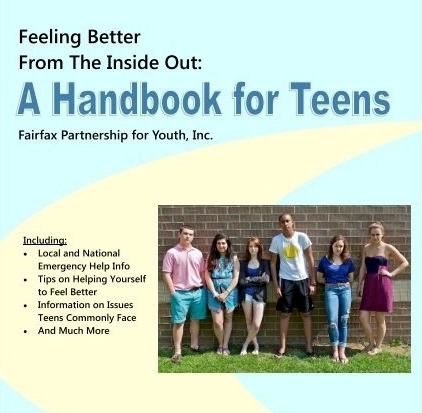Feeling Better From the Inside Out

In 2013, the Fairfax Partnership for Youth published a second edition of “Feeling Better From the Inside Out: A Handbook for Teens.” The booklet addresses a variety of mental and behavioral health topics, including numerous suggestions for seeking help and practicing self-care. The entire handbook can be found at: https://www.yumpu.com/en/document/read/4736669/feeling-better-from-the-inside-out-the-fairfax-partnership-for-youth. Some of its timeless ideas appear below.
Talk to an adult you trust, including a parent, grandparent, school counselor, teacher, coach or faith leader, such as a minster, rabbi or imam. Unlike your peers, these individuals have extensive life experience and more objective perspectives.
As a temporary escape, read or listen to music. If possible, take an hour after you get home from school to relax, have a snack and recharge before starting your homework.
Identify your triggers, situations which make you angry or frightened. This will allow you to stay calmer when you face them. Exercise can help release anxious energy. Take a yoga or Zumba class, go for a run or play your favorite sport.
Try making a downward comparison. Think about a problem you are facing and imagine one that is worse. This will enable you to notice positive aspects of your current situation.
If your extracurricular activities are causing stress, decide which ones are the healthiest for and most important to you. Consider dropping others to give yourself free time away from academic expectations and pressure. When someone asks you to volunteer or join a club and you are not sure you have enough time in your schedule, nicely say that you need a day to consider. Examining the pros and cons will permit you to make a better decision. It is okay to decline in a clear, polite manner.
Remember how you say things is often more important than the words you use. Employ “I” language, which focuses on you and your feelings, rather than “You” statements. The more reasonable you are in a disagreement, the less likely the conversation will escalate.
If you are being bullied at school, it is not your fault. Tell an adult; and try not to isolate yourself since having others around you can be protective.